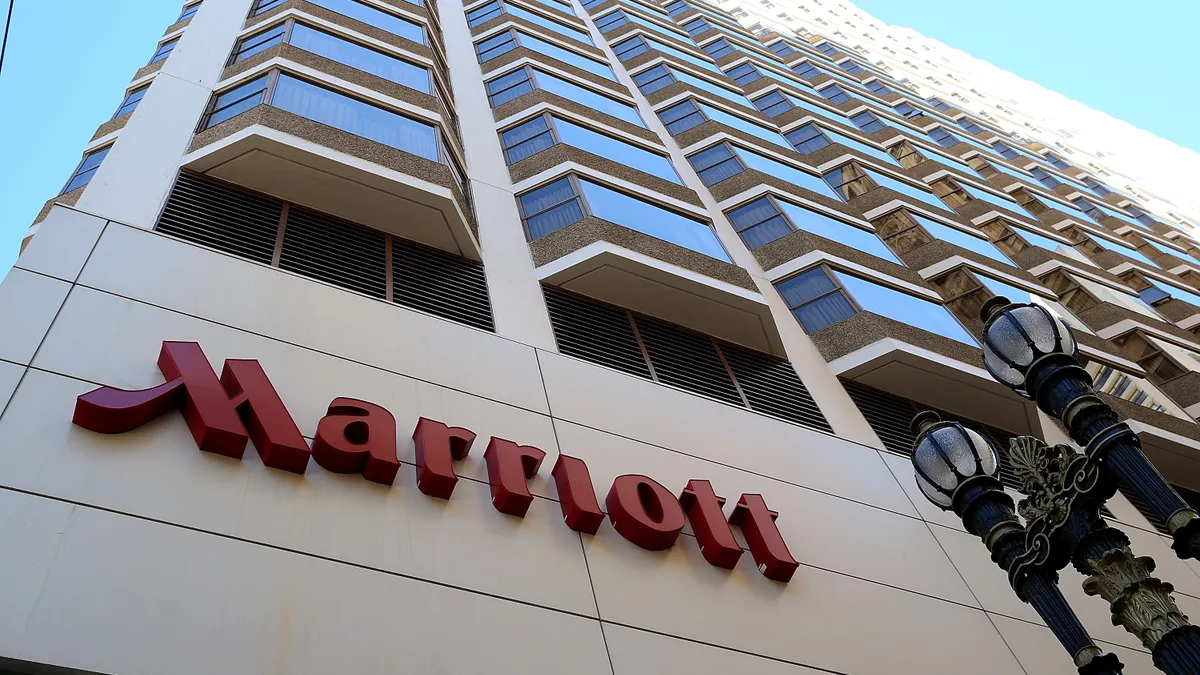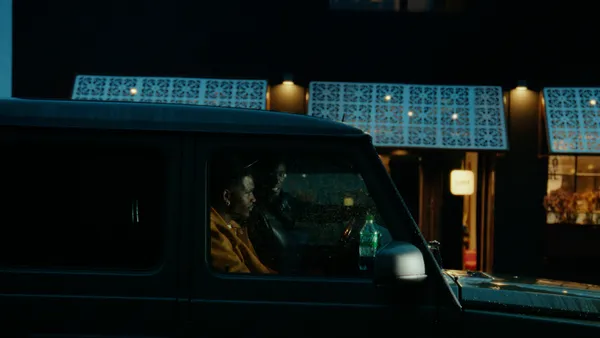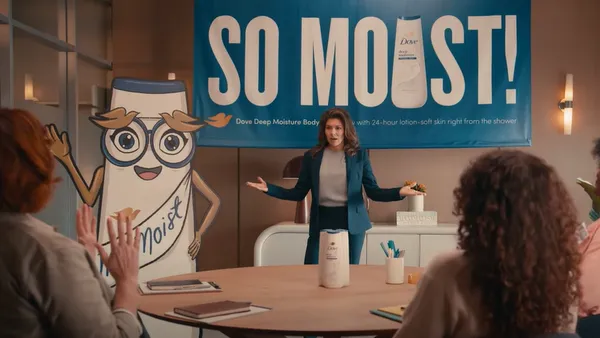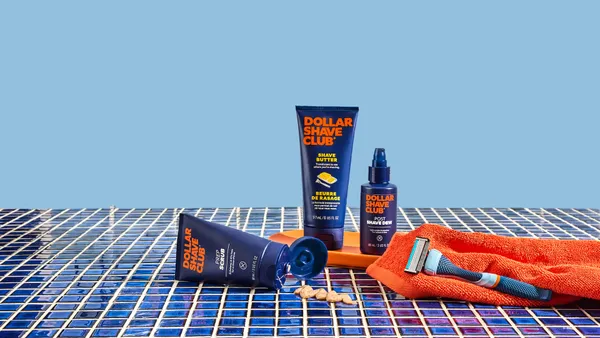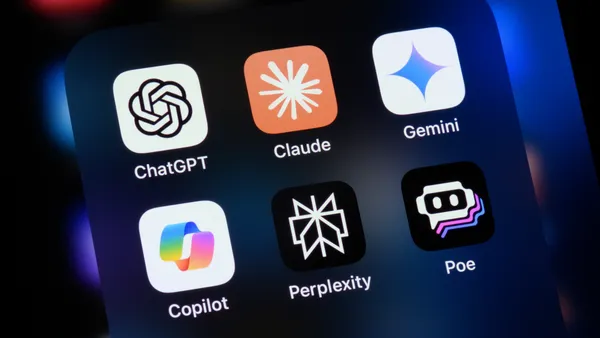Dive Brief:
- Marriott International recently became one of the first hospitality brands to create its own digital art using nonfungible tokens (NFTs), the company revealed in a press release. On Dec. 4, three individuals won the pieces during Art Basel Miami, along with 200,000 reward points for the chain's loyalty program Marriott Bonvoy.
- The pieces, created by digital artists TXREK, JVY and Erick Nicolay, were inspired by the company's "Power of Travel" campaign. That effort involves a TikTok activation and an application of Pinterest's technology and real-time trends in out-of-home placements.
- The move reflects a continued expansion of brands into the metaverse, a version of the internet bridging virtual and real worlds in a shared space that has yet to be fully realized. Marriott International said it will continue building a metaverse presence in 2022.
Dive Insight:
Marriott's NFTs were unveiled at a special event during Art Basel Miami Beach 2021, the show for contemporary and modern art. Unlike other NFT issuances that have typically involved some sort of charitable auction, Marriott Bonvoy's reveal was treated more like a unique art unveiling with a clock counting down to the reveal of the NFT code. The activation was designed to drive excitement for the brand's loyalty program with art enthusiasts and position Marriott as an early entry in the emerging metaverse, for which NFTs are expected to be a key building block.
"We continuously seek opportunities to defy what is conventional and, with our entry in the digital goods space, we are further igniting the transformative power of travel in the virtual world, while supporting this growing community of incredibly talented artists," Brian Povinelli, senior vice president of brand, loyalty and portfolio marketing at Marriott International, said in a statement.
NFTs have dominated the marketing space over the second half of 2021. The initial appeal of the digital tokens seems obvious, as they are a simple and cost-effective way to create some limited-edition, collectible buzz around brands, particularly among digitally savvy consumers. More broadly, interest in collectibles has been high during the pandemic as people spend more time at home.
Brands ranging from McDonald's to State Farm have issued some version of these one-of-a-kind digital collectibles that can be traded on the blockchain, be it a shoe, a "friendship box" of reimagined brand iconography or a frosting tokens.
Some see a future for tokens that are linked to intellectual property or as auctions that can support brand-related causes that consumers care about, such as Bacardi's recent NFT sale connected to its Reserva Ocho Sherry Cask Finish rum, in which proceeds were used to support black-owned establishments in pursuit of liquor licenses.
Each of Bonvoy's three NFTs is an interpretation of travel from the artists' own experiences. They are meant to show how travel has an "unmistakable impact on the human spirit," according to the release.
The pieces include interpretations of the magic envisioned from new experiences (using Marriott Bonvoy's path connector to link the journeys); the ability of environmental travel to evoke different emotions (depicting three environs in different points of time); and the duality of the elegance of indoor travel and the inspiration of outdoor experiences.
Despite brands' enthusiasm for NFTs, it remains unclear what value these pieces will have over time. There is also consumer confusion over what they are or how to use them. The coming months are likely to clarify if they have staying power or turn out to be a fad.
"I haven't been personally impressed with some of the things I've seen thus far," Darren Mann, president of Aria Exchange, an NFT trading platform that is part of media company Aria Network, told Marketing Dive last month. "I don't think some of the gimmicky drops are going to have sustainability."


